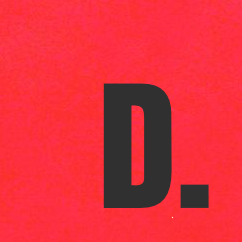What do you think?
Rate this book


326 pages, Paperback
First published September 13, 2016
"That afternoon Michelle woke up on her futon craving a salt bagel and an Odwalla, the inside of her mouth an apocalypse, same as always."I didn't really notice the tiny hints of apocalypse throughout that section and I think I computed them as metaphor or drug trips but not reality. Then it shifts to a different tone and focus when the character moves to Los Angeles. First there is this meta-writer section where she discusses why a lesbian character is "fringe" but a white male going through the same experience would be "serious literary fiction." (So true.) While I didn't care as much about this diversion, I can see how it served as a bridge between the two sections and to help explain all the abrupt changes and disruptions.

Like when you're telling an anecdote and someone interjects - Yeah, you already told us that story. Oh, no - you are repeating yourself, you cannot stop talking, you are so checked out you cannot remember what you have said to whom, you are so self-involved. To hear a person say Yeah, I read that in your book is this shame times twenty. You so cannot stop talking that you actually wrote down your talk and then expected others to read it, and not even that will exorcize your narratives, you will in fact continue to talk and talk, expecting us to pretend we don't know the story, which you have performed into actual microphones in public places. Guess what, Michelle? We know your mother is a chain-smoking lesbian psych nurse.Black Wave wasn't perfect. The transition between the first part, set in San Francisco, and the second part, set in Los Angeles, was confusing (although that may be a realistic depiction of what it's actually like to move from San Francisco to Los Angeles), and some of the meta-fictional high jinks felt like Tea was showing off her cleverness, rather than adding a truly new layer to the narrative. These minor missteps were more than outweighed by such lovely inventions as the dreaming soulmates finding each other on a worldwide Match.com. The Michelle of Black Wave is exactly the kind of person I want to be with when we shut off the lights for the last time.
Then Michelle started hanging out at the Zen Centre too much. What was a story if you didn't even exist? Michelle observed the way she told the same stories about herself, thereby cementing this false idea of self harder and harder into her psyche. It was all ego. There was no Michelle, so how could there be her memoir? It seemed to Michelle, sitting on a straw floor in a wide room, her legs folded atop each other, eyes half-mast, that being a writer of memoir was one of the most violent, anti-Buddhist things a person could do with their life. She thought of her fight with Lu. It was her story fighting with Lu's story. If neither of them even existed, why bother fighting? No self, no story. Michelle felt the ache and burn of her ego hurling itself against such thoughts as she sat down in front of her computer in Los Angeles.
[...]
Page after page she built a straight, male, middle class Michelle who did not drink and did not do drugs. Oh wait - could she do that now? As a straight, male, middle class man could she now shoot up literary heroin and go on a literary crack bender? It depended, she suspected, on where straight, male, middle class Michelle worked and how many dependents depended on him. Michelle realised that this was what they called raising the stakes. Sometimes the fact that she had not gone to college really did seem to have a negative effect on her life. If Michelle had gone to college she was certain she'd have been taught to write from the perspective of a straight, white, middle class man. She would have to teach herself to be universal. She could do it, it would just take time. Meanwhile, she found a job around the corner, at the used book and record store.